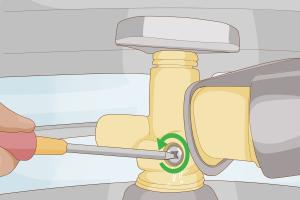Mastering the Art of Propane Tank Filling: A Comprehensive Guide

-
Quick Links:
- Understanding Propane Tanks
- Safety Precautions Before Filling a Propane Tank
- Tools and Equipment Needed
- Step-by-Step Guide to Filling a Propane Tank
- Common Mistakes to Avoid
- Expert Tips for Propane Tank Maintenance
- FAQs
Understanding Propane Tanks
Propane tanks are essential for a variety of applications, from grilling in the backyard to heating your home. Understanding how these tanks work and their various components is critical for safe operations.
- Types of Propane Tanks: Learn about vertical vs. horizontal tanks, and the different sizes available.
- Components: Familiarize yourself with the pressure gauge, relief valve, and connection points.
Safety Precautions Before Filling a Propane Tank
Safety should always be your top priority when handling propane. Here are essential precautions to take:
- Always fill your propane tank outdoors to avoid gas buildup.
- Wear appropriate safety gear, including gloves and goggles.
- Check for leaks before and after filling the tank using soapy water.
Tools and Equipment Needed
Before you start the filling process, gather the necessary tools and equipment:
- Propane filling nozzle
- Protective gloves and goggles
- Scale or weight to measure the tank
- Soapy water for leak detection
Step-by-Step Guide to Filling a Propane Tank
Here’s a detailed guide on how to safely fill your propane tank:
- Inspect the Tank: Ensure the tank is not damaged or rusted. Check the expiration date.
- Position the Tank: Place the tank on a flat surface away from any flammable materials.
- Connect the Filling Nozzle: Securely attach the nozzle to the tank’s filling port.
- Start the Filling Process: Open the valve slowly and monitor the gauge. Fill until the tank is 80% full to allow for expansion.
- Disconnect and Check for Leaks: After filling, disconnect the nozzle and apply soapy water to the connection points to check for leaks.
Common Mistakes to Avoid
Here are some mistakes to avoid when filling a propane tank:
- Filling the tank indoors or in a confined space.
- Ignoring safety gear and equipment.
- Overfilling the tank beyond the 80% capacity.
Expert Tips for Propane Tank Maintenance
Maintaining your propane tank is crucial for safe and efficient use:
- Regularly check for leaks and rust.
- Store tanks upright in a cool, dry place.
- Schedule annual inspections with a certified technician.
FAQs
Here are some frequently asked questions regarding filling propane tanks:
- 1. How often should I fill my propane tank?
- It depends on usage, but a good rule of thumb is to refill when it’s about 20% full.
- 2. Is it safe to fill my propane tank myself?
- Yes, as long as you follow safety precautions and have the right equipment.
- 3. How can I tell if my propane tank is empty?
- Use a weight scale or check the gauge on the tank.
- 4. What should I do if I smell gas while filling?
- Stop the filling process immediately, evacuate the area, and contact emergency services.
- 5. Can I use a propane tank that is overfilled?
- No, overfilled tanks can lead to dangerous leaks and should not be used.
- 6. How do I store my propane tank?
- Store it upright and away from heat sources or flammable materials.
- 7. What is the lifespan of a propane tank?
- Typically, propane tanks last between 10-30 years, depending on maintenance and usage.
- 8. Can I exchange my propane tank at any location?
- Most gas stations and home improvement stores offer propane tank exchanges.
- 9. What are the signs of a leaking propane tank?
- Signs include a rotten egg smell, hissing sounds, or dead vegetation around the tank.
- 10. How can I safely dispose of an old propane tank?
- Contact your local waste management facility for proper disposal guidelines.
Random Reads
- How to block a number from texting you
- 8 ways to get melon seeds in minecraft
- How to scan barcodes android
- How to connect nintendo switch to chromebook
- How to connect macbook to tv
- How to change your start page on mozilla firefox
- How to close google chrome
- How to close old email accounts
- How to widen a doorway
- How to add text transitions and animations in powerpoint